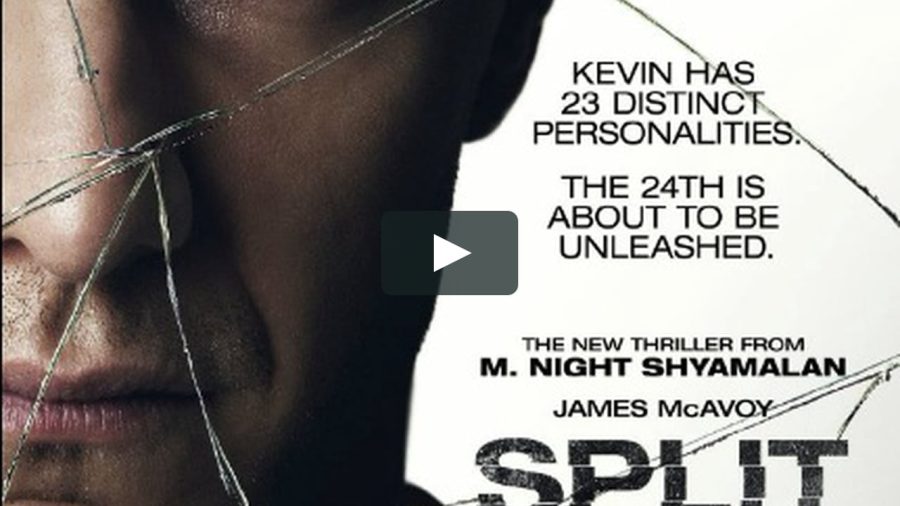Opening Thought: Deeply suspenseful. Definitely interesting. A little blood and gore with minor plot holes. I’ve seen worse.
Synopsis: “Split” is the long-awaited continuation of the acclaimed writer-director M. Night Shyamalan’s 2000 superhero film “Untouchable.” Three young women are taken captive by “Dennis,” one of 23 personalities occupying the mind of Kevin Wendell Crumb (James McAvoy), a victim of severe child abuse battling dissociative identity disorder. Kevin’s therapist, Dr. Karen Fletcher (Betty Buckley), gradually surmises that Kevin’s dominant personality, “Barry,” has been overpowered by the so-called “Horde” (the undesirable personalities of “Dennis,” “Ms. Patricia,” and “Hedwig”). It is soon discovered that a twenty-fourth personality, known only as “The Beast,” has emerged and is more powerful than all the other personalities combined in Kevin’s mind.
Review: “Split,” a title most fitting for the subject matter, executes a number of things well. Shyamalan deserves a resounding pat on the back for this one. I haven’t been this impressed with a Shyamalan-helmed film since his work behind the camera of “The Sixth Sense” and “Unbreakable.” What is more, the Oscar-nominated Scottish actor James McAvoy gave one of the most chameleonic performances, thus far in 2017.
Effortlessly, McAvoy flips the switch, going from an extroverted gay painter to a strict female disciplinarian, from a slow-witted nine-year old to a creepy and sexually-repressed loner. And from all of that, finally, he manages to switch to a sadistic cannibal that desires the destruction of a “pure world.” Though the film begins to spiral toward nonsensical in the third act, what cannot be ignored is what McAvoy accomplished in his role. In one scene at the end of the film, McAvoy masterfully “splits” between “The Horde” personalities of “Dennis,” “Ms. Patricia,” and “Hedwig” before reverting back to what becomes the dominant personality in a manner of seconds.
The dark and grimy visuals of “Split,” coupled with McAvoy’s transformative performance, fair well in its aim to reintroduce Shyamalan’s twisted world of heroes and villains to audiences. Indeed, it becomes a world where quiet imperviousness and radical fragility may once again collide. Of the three kidnapped women, Casey (relative newcomer Taylor-Joy) was the clear standout, and not because she had the second-most developed character in the film. She was just simply the most compelling after McAvoy.
As the troubled outsider amongst her friends Claire (Haley Lu Richardson) and Marcia (Jessica Sula), Taylor-Joy gives a noteworthy effort as the reluctant heroine of the film, but not in the Jennifer Love Hewitt “look-at-my-chest” sort of way or the super-duper “I am woman, hear me roar” way, either. On the contrary, Taylor-Joy’s portrayal is more aligned with that of a considerably weaker yet still identifiable beast in her own right.
“Split” attempts and, partially succeeds, in posing, cinematically, a theoretical question—what happens when two kindred spirits with drastically different methods for dealing with traumatic histories meet? Will there be death? Mutual destruction? Or mercy?
Regardless, in the end, three things become unequivocally clear with this film. First, Shyamalan has returned to directorial significance for the time being. Second, McAvoy reminds us in a profound way he can do more than look pensive in an expensive wheelchair. And third, Bruce Willis for president. Because one-liners matter.
The Critic’s Choice: 3 out of 5 stars

